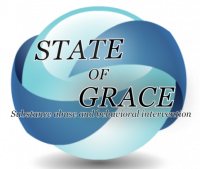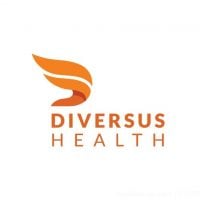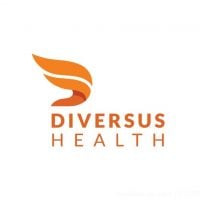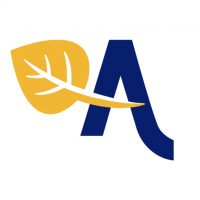Acute Treatment Unit
Drug Rehab Center in Pueblo, Colorado
- Mental Health
- Dual Diagnosis
Acute Treatment Unit in Pueblo, Colorado is a substance abuse and addiction treatment center that offers comprehensive, individualized treatment plans to help individuals and families manage the physical, mental, and emotional effects of substance use disorder.
About This Colorado Facility
Acute Treatment Unit in Pueblo, Colorado is a substance abuse and addiction treatment center that provides a comprehensive, individualized approach to recovery. The facility is fully staffed with medical professionals and counselors who are qualified to help individuals and families manage the physical, mental, and emotional effects of substance use disorder. The facility offers detoxification and stabilization, inpatient treatment, group and individual therapy, aftercare programming, and other services to help individuals on their paths to recovery.
At Acute Treatment Unit, individuals can expect to receive personalized treatment plans that take into account their individual needs and goals. Treatment services range from psychotherapy and counseling to utilize evidence-based practices that assist in addressing the underlying causes of substance abuse. Additionally, the facility provides a safe, supportive environment where individuals can receive 24-hour medical and therapeutic support while learning new skills and strategies to address the challenges of recovery.
Acute Treatment Unit is accredited by the Joint Commission and is licensed by the State of Colorado Department of Human Services – Behavioral Health. The facility also has received recognition for their commitment to excellence in substance abuse treatment and has earned quality awards from the Department of Health Care Policy and Financing. In addition, the facility offers a range of experiential therapies, including yoga, music therapy, and art therapy, to help individuals develop new coping techniques.
Genders
Ages
Modality
Additional
Conditions and Issues Treated
When addiction and psychiatric issues co-occur, the addict’s recovery is more successful when both conditions are treated. A dual diagnosis refers to a condition in which the patient is diagnosed with two health issues: addiction and bipolar disorder.
Usually, dual diagnosis sufferers are prescribed a combination of treatments for each condition. The most common therapies are psychotherapy, behavioral therapy, spiritual counseling, 12-step programs, and medication management.
Psychiatric conditions are an obstacle to recovery because they can create roadblocks to a healthy lifestyle. Drugs and alcohol may be used as a means of self-medication, which can have dangerous consequences. Over time, addicts build up a tolerance and suffer withdrawal symptoms when drug use is stopped.
With the proper treatment, dual diagnosis sufferers can overcome their conditions and achieve lasting sobriety.
Levels of Care Offered at Acute Treatment Unit
This center offers a variety of custom treatment tailored to individual recovery. Currently available are Dual-Diagnosis, Inpatient, with additional therapies available as listed below.
Inpatient treatment is an option that provides addicts with a supportive environment in which they can stop using. This type of intensive care and supervision is appropriate for those who were unable to quit on their own or need more structure than they could get from outpatient treatment, such as the addict most in need of this level of care.
The goal of inpatient rehab is for the addict to stay focused on sobriety and remain free of mood altering substances. Inpatient treatment programs usually offer the following: detox, therapy groups, one-on-one counseling, medication management and aftercare planning.
Therapies & Programs
Individual therapy is a critical component of addiction recovery. It allows the patients to go deep into their core issues and discover how to handle those problems better. Therapy can be conducted in individual sessions as well as group settings. In individual therapy for addiction, the patient meets with their therapist one-on-one to focus on the underlying issues. This allows patients to open up and discuss personal topics they may not feel comfortable discussing in a group setting. This type of therapy can help develop solutions specific to each patient, which helps speed up the recovery process.
Couples therapy is beneficial for couples in which at least one partner has a substance use disorder. This type of therapy can help partners improve communication skills, which is an important factor in a healthy relationship. It can also help partners better understand one another so they have a greater understanding of how the other partner may be feeling.
Benefits of couples therapy include:
- Improvement in communication skills
- Increased understanding of the dynamics within a relationship
- Increased sense of support and trust in the relationship
- Better teamwork between partners/increased willingness to listen and work together
- Enhanced tolerance of each other’s shortcomings
- Improved ability to have open, honest communication with each other
Family therapy is a crucial part of drug treatment and getting sober. It is one of the most effective ways to help addicts stay on the path to long-term sobriety. When a drug addict decides that they want to try and get sober, it takes the support of every person they love to succeed. It can be incredibly difficult for loved ones to watch an addict go through the pain and suffering of withdrawal, but by being there with them and supporting them, they can help to make sure that the addiction never returns.
One of the most important parts of family therapy is the relapse prevention plan. During treatment, therapists and doctors will often sit down with the addict and their family to develop a plan in case the addict ever feels like they want to use again. This plan should involve steps the addict and family can take together to prevent them from relapsing in the future. An addict’s family can play a vital part in helping them to avoid relapse because they can spot the warning signs and help them get back on track before it becomes too much of a problem.
Group therapy helps prevent addicts from feeling isolated or unique in their situation by offering a sense of comfort and fellowship. It also creates a forum for addicts to build their support systems and learn from each other. The group therapy sessions at Acute Treatment Unit occur in a group setting rather than one-on-one to create a safer, controlled environment where addicts feel comfortable.
Trauma therapy helps people dealing with addiction by allowing them to confront the traumas of their past and move past them. It is important to note that trauma therapy should not be confused with PTSD (post-traumatic stress disorder) Rather, it is used to treat the effects of trauma, which are often at the root of addiction.
Dialectical Behavior Therapy was developed in the 1980s to treat chronically suicidal individuals. It is a cognitive-behavioral therapy that combines strategies derived from Zen Buddhism, such as mindfulness training. DBT has been adapted for use with other types of psychiatric problems, including substance abuse and personality disorders. DBT aims to help patients change their thinking and behavior, instead of relying on medication.
Cognitive Behavioral Therapy (CBT) is a common therapeutic approach to help drug addicts. It teaches addicts new ways of thinking and behaving so that they can avoid relapse. There are several forms of CBT used in drug rehabilitation centers.
Cognitive Restructuring helps addicts identify faulty, negative thinking so that they can work together with the therapist to find healthier ways of thinking, resulting in better decision-making.
Cognitive Behavioral Therapy for Addiction uses the principles of CBT to help treat addiction. It focuses on specific aspects of each person’s thinking, feeling, physiology, and behavior. It aims to identify specific problems in these areas and create a personalized treatment strategy.
Payment Options Accepted
For specific insurance or payment methods please contact us.
Is your insurance accepted?
Ask an expert, call (888) 674-0062
Health Solutions Associated Centers
Discover treatment facilities under the same provider.
- Health Solutions - Adult Outpatient Services in Pueblo, CO
- Health Solutions - Crestone Recovery & Adult OP in Pueblo, CO
- Health Solutions - Youth and Family Services in Pueblo, CO
- Health Solutions - Robinson Street in Trinidad, CO
- Health Solutions Walsenburg in Walsenburg, CO
Learn More About Health Solutions Centers
Additional Details
Specifics, location, and helpful extra information.
Pueblo, Colorado 81001 Phone Number(719) 545-2746 Meta DetailsUpdated November 25, 2023
Staff Verified
Patient Reviews
There are no reviews yet. Be the first one to write one.
Pueblo, Colorado Addiction Information
The Centennial State has slipped to a ranking of 12th in the country for drug abuse. Each year around 24% of the state's population uses illegal drugs while nearly 5% of its population abuses alcohol. Substance-related deaths in Colorado were responsible for 15.12% between 2008 and 2017. Fortunately, Colorado drug and alcohol addiction treatment are available to help a person overcome addiction.
In Pueblo County specifically, there were over 2,600 individuals with a substance use disorder. Over 1,500 drug overdose deaths happened in Colorado in 2016, of which over 1,000 were due to opioids. The majority of these cases involved people of young age. Treatment for drug addiction may include behavioral therapy, medications, or a combination of both. Medications can help individuals with addictions to opioids stabilize their condition
Treatment in Nearby Cities
- Woodland Park, CO (54.6 mi.)
- Aspen, CO (134.9 mi.)
- Trinidad, CO (77.7 mi.)
- Glenwood Springs, CO (170.6 mi.)
- Wray, CO (177.5 mi.)
Centers near Acute Treatment Unit



The facility name, logo and brand are the property and registered trademarks of Acute Treatment Unit, and are being used for identification and informational purposes only. Use of these names, logos and brands shall not imply endorsement. RehabNow.org is not affiliated with or sponsored by Acute Treatment Unit.



